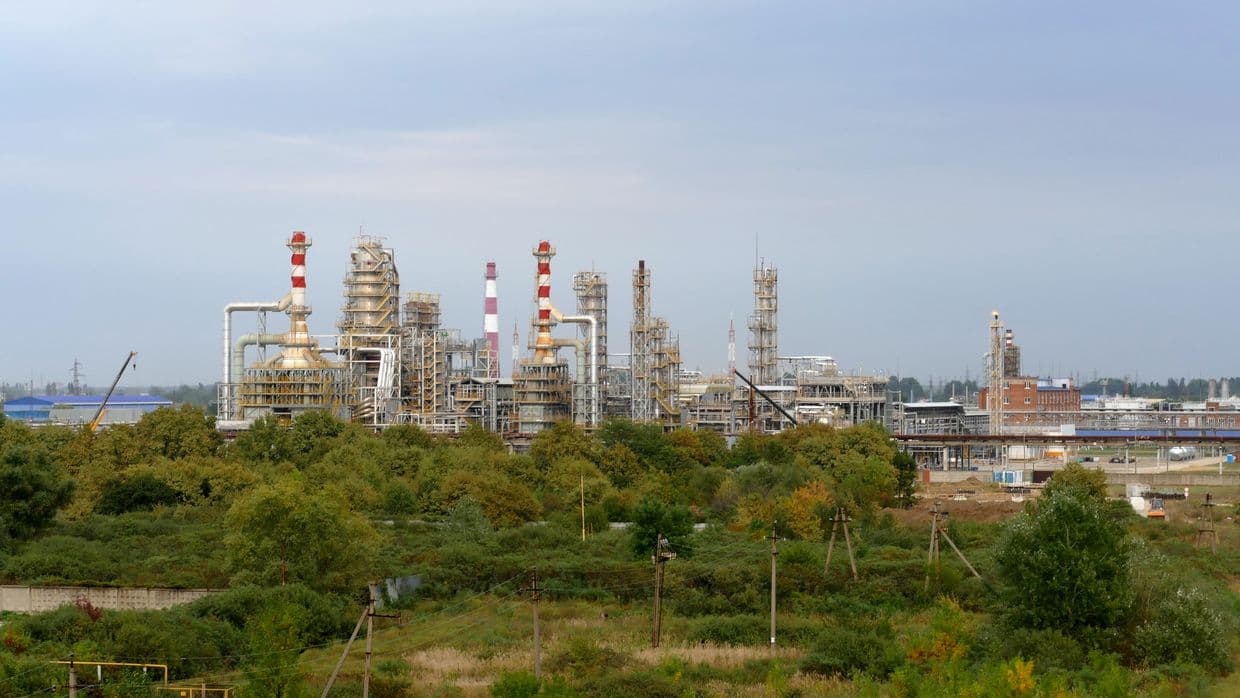Ukraine confirms drone strike on one of southern Russia's largest oil refineries, vows to continue attacks

Ukrainian drones struck the Afipsky Oil Refinery in Russia's Krasnodar Krai overnight on Sept. 26, Ukraine's General Staff has confirmed.
The Afipsky refinery, located about 200 kilometers (124 miles) from the front line, serves as a key logistics hub for diesel fuel and aviation kerosene supplies to Russian forces.
It accounts for 2.1% of Russia's oil refining output, processing about 6.25 million tons of oil each year.
"As part of reducing the enemy's offensive potential and complicating the supply of fuel and ammunition to the military units of the occupiers, on the night of September 26, units of the Unmanned Systems Forces of the Armed Forces of Ukraine, in cooperation with other components of the Defense Forces, hit the facilities of the Afipsky Oil Refinery," the General Staff said in a post on social media.
Russian authorities claimed that drone debris fell on one of the refinery's units during a series of drone strikes, causing a fire covering 30 square meters (323 square feet) that was later extinguished.
Russian officials said no casualties or significant infrastructure damage occurred. The General Staff said the "extent and details of the damage are being clarified."
"The Defense Forces will continue to take measures to undermine the offensive potential of the Russian invaders and force the Russian Federation to stop its armed aggression against Ukraine," it added.
Ukrainian sanctions in action 🔥
— Kate from Kharkiv (@BohuslavskaKate) September 26, 2025
(Afipsky refinery, Russia) pic.twitter.com/dMRS3hWHOr
Ukrainian drones previously hit the refinery on Aug. 7 and 28, forcing the shutdown of one facility. The nearby Krasnodar refinery, affiliated with Afipsky, has also come under attack.
Russia's Defense Ministry claimed to have intercepted 55 Ukrainian drones across eight regions overnight, including three over Krasnodar Krai.
Kyiv's strikes on Russia's oil sector have severely disrupted fuel supplies and logistics for Moscow's armed forces, Ukraine's Commander-in-Chief Oleksandr Syrskyi said on Sept. 25.
"The capabilities of the enemy's military-industrial complex have been significantly reduced; we can see this on the battlefield," he said at a meeting with journalists attended by the Kyiv Independent.
The commander credited Ukraine's DeepStrike campaign, a wave of drone strikes, with creating a fuel crisis in Russia that is directly hampering its operational activity and supply lines.
"This is a fuel crisis in Russia, which directly affects logistics and the supply of its army," Syrskyi said.
Krasnodar Krai, situated just east of occupied Crimea and separated by the Kerch Strait, has become an increasingly frequent target of Ukrainian drone strikes.
Around 50% of gas stations in occupied Crimea and Sevastopol have stopped selling gasoline due to fuel supply disruptions, Russian pro-government media outlet Kommersant reported on Sept. 24.
The publication, citing monitoring data from 17,000 Russian gas stations, said shortages were also recorded in other regions, but the situation was most acute on the peninsula.
Kyiv continues to escalate its campaign against Russian oil and gas infrastructure, a key source of Moscow's revenues helping to fuel its all-out invasion of Ukraine.
According to the Financial Times, 16 of Russia's 38 oil refineries have been struck by Ukrainian drones since August 2025. The disruptions have limited Russia's refining capacity by over 1 million barrels per day, the research group Energy Aspects told FT, dropping exports to below pre-war levels.
Ukraine routinely launches deep strikes against military and industrial facilities in Russia, primarily relying on domestically developed drones.














